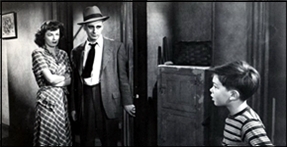Sun 4 May 2025
Reviewed by Mike Tooney: OLD-TIME DETECTION, Spring 2025.
Posted by Steve under Magazines , Reviews[2] Comments
(Give Me That) OLD-TIME DETECTION. Spring 2025. Issue #68. Editor: Arthur Vidro. Old-Time Detection Special Interest Group of American Mensa, Ltd. 34 pages (including covers).
THE LATEST issue of OTD could be a nostalgia trip for a lot of readers, especially those who were turned on to detective fiction when they were adolescents. As you’ll see, editor Arthur Vidro will show us the part he has been playing in the nostalgic revival.
THE ISSUE begins with Edward D. Hoch, which is always a great start. There’s an interview Hoch had with EQMM in 1976, followed by an essay Hoch wrote for THE ARMCHAIR DETECTIVE in 1979. In the interview he cites the first influential adult book he ever read to be an EQ novel and explains his affinity for the short story form. (Which book? you ask. Read OTD and see.) In the essay Hoch does a good job of connecting real-life criminality with fiction. Even Theodore Dreiser got into the act!
LIKE MOST fictioneers, Stuart Palmer had his own way of going about writing detective fiction, and we have a short summary of it here.
ONE LONG-RUNNING detective fiction character was Hugh Pentecost’s John Jericho, whose adventures were collected by Crippen & Landru in 2008 and for which S.T. Karnick wrote an introduction. In it Karnick notes Pentecost’s primary interest in social corruption and personal responsibility. And were there prefigurings in Jericho of Jack Reacher?
EQ’s 1949 classic serial killer novel CAT OF MANY TAILS has recently been reissued by Otto Penzler with an introduction by Richard Dannay, Frederic Danny’s son, that provides background information on that book and the two cousins’ involvement in detective fiction in general, but focuses primarily on Frederic Dannay’s individual scholarly contribution, which in itself was prodigious.
THE FICTION PIECE is Agatha Christie’s “A CHESS PROBLEM,” a story guaranteed to make you think twice before you sit down at the board.
NEXT, the reigning expert on theatrical versions of mysteries, Amnon Kabatchnik, gives us the background for J. B. Priestley’s AN INSPECTOR CALLS, which he characterizes as a “mystery parable” with “an unexpected twist ending.”
IF YOU enjoyed THE THREE INVESIGATORS series of juvenile mysteries when you were younger, then you’ll be happy to hear that “THE THREE INVESTIGATORS ARE BACK” in deluxe paperback and electronic editions. Arthur details how he came to be involved with the project, modestly claiming to be “A SMALL PART OF THE ACT.”
WHAT WAS POPULAR in paperbacks for the detective fiction fan fifty years ago? Some of the best stuff to come along, reports Charles Shibuk, classics all: Raymond Chandler, G. K. Chesterton, Agatha Christie, John Collier, Stanley Ellin, Dick Francis, Ellery Queen, and Josephine Tey.
MICHAEL DIRDA offers his personal selection of “MYSTERY NOVELS SO CLEVER YOU’LL READ THEM TWICE,” which includes a couple of books by relatively unknown writers.
THEN WE HAVE perceptive reviews by Jon L. Breen of CLOUD NINE by James M. Cain, a wildly erratic writer, and Arthur Vidro of THE REGATTA MYSTERY AND OTHER STORIES by Agatha Christie, who never suffered from Cain’s affliction.
COLLECTING THINGS, especially detective fiction, is an honorable pursuit and two collectors, Nina Mazzo and Donald Pollock, talk about it.
THE PUZZLE PAGE might present a problem for readers who haven’t been exposed to Hollywood’s B-films from the 1930s.
THE SPRING ISSUE of OTD is well worth your time – and a subscription.
Subscription information:
– Published three times a year: Spring, summer, and autumn. – Sample copy: $6.00 in U.S.; $10.00 anywhere else. – One-year U.S.: $18.00. – One-year overseas: $40.00 (or 30 pounds sterling or 40 euros). – Payment: Checks payable to Arthur Vidro, or cash from any nation, or U.S. postage stamps or PayPal. Mailing address:
Arthur Vidro, editor
Old-Time Detection
2 Ellery Street
Claremont, New Hampshire 03743
Web address: vidro@myfairpoint.net














